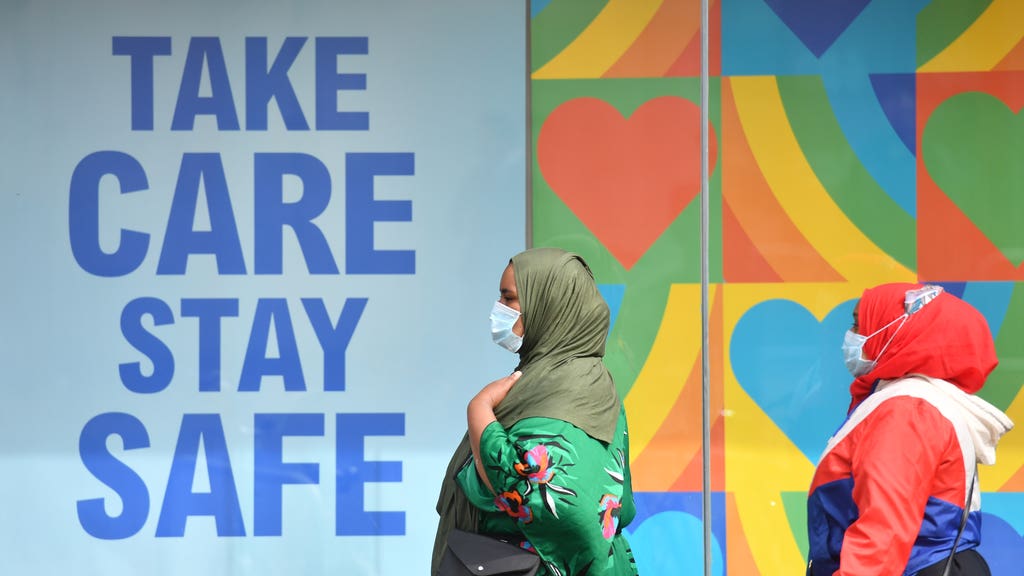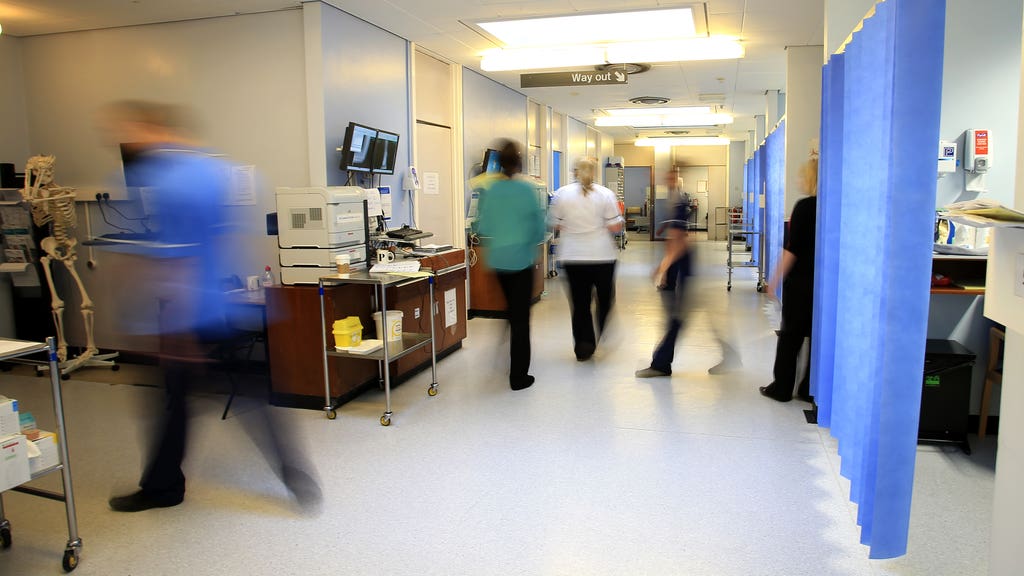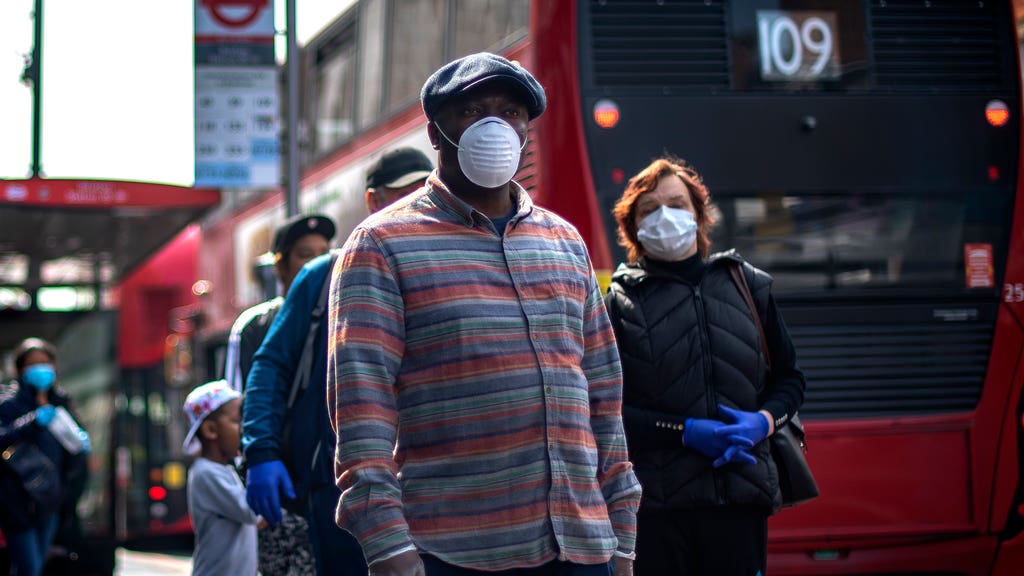Covid-19: Ethnic minority deaths were ‘unacceptably high’ during pandemic, MPs say
The first 10 NHS staff to die from Covid-19 were from Black, Asian and minority ethnic backgrounds

Your support helps us to tell the story
From reproductive rights to climate change to Big Tech, The Independent is on the ground when the story is developing. Whether it's investigating the financials of Elon Musk's pro-Trump PAC or producing our latest documentary, 'The A Word', which shines a light on the American women fighting for reproductive rights, we know how important it is to parse out the facts from the messaging.
At such a critical moment in US history, we need reporters on the ground. Your donation allows us to keep sending journalists to speak to both sides of the story.
The Independent is trusted by Americans across the entire political spectrum. And unlike many other quality news outlets, we choose not to lock Americans out of our reporting and analysis with paywalls. We believe quality journalism should be available to everyone, paid for by those who can afford it.
Your support makes all the difference.A damning report from MPs has slammed the “unacceptably high” death rates among people from Black, Asian and minority ethnic communities that occurred during the Covid-19 pandemic.
The study, from the cross-party Science and Technology Committee and the Health and Social Care Committee, said serious errors and delays, including on testing, care homes and the timing of the first lockdown, have cost lives during the virus outbreak.
The pandemic exacerbated existing social, economic and health inequalities among ethnic minority communities, the MPs said.
Moreover the study, which assesses the government’s initial response to the pandemic, found that higher incidence of Covid among minority these groups may have resulted from higher exposure to the virus “rather than—or as well as—higher comorbidities” linked to poor outcomes for virus including cardiovascular diseases, high blood pressure and diabetes.
In fact, Professor Iain Bell - Deputy National Statistician at the Office for National Statistics (ONS) - told the inquiry that once socio-economic factors such as deprivation had been accounted for in their models, pre-existing health conditions “did not explain much”.
The report further concluded that the UK’s preparation for a pandemic was far too focused on flu and both scientists and ministers waited too long to push through lockdown measures in early 2020 which would have saved lives.

In May 2020, analysis by The Health Foundation found that after adjusting for age, people of Black ethnicity were four times more at risk of Covid-19 related death than those of white ethnicity.
The most recently updated figures show that, in England, the rate of these deaths among men of Black African ethnic backgrounds was 3.7 times higher than among men of white ethnicity while the rate in women was 2.6 times greater.
Among people of Bangladeshi, Black Caribbean or Pakistani ethnic background the rate of Covid-19 related deaths were greater.
Written evidence to the inquiry was also critical of the Government’s efforts to engage and communicate with people from minority ethnic groups.
This comes after a number of experts and equality groups accused the Government of failing to protect high-risk ethnic minority groups during the pandemic while rates of vaccine hesitancy continue to grow among parts of these communities.
“It’s almost a quadruple whammy - minority ethnic communities are more overexposed because of their circumstances, less protected in that they’re less likely to take up the vaccine because their fears and concerns are not being robustly addressed, then we’ve got higher infection rates and few mitigations,” Dr Zubaida Haque, a member of Independent SAGE, told The Independent.
In June 2020, the Equalities and Human Rights Commission launched an inquiry into the impact of coronavirus on ethnic minorities.

Moving forward, the inquiry recommends that the Government “ensures its ‘levelling up’ agenda includes specific policies to reduce health inequalities, with a particular focus on ensuring that certain groups, including people from Black, Asian and minority ethnic backgrounds, do not continue to face unequal health outcomes”.
NHS staff from Black, Asian and minority ethnic backgrounds “should be included in emergency planning and decision-making structures”, MPs also added, citing evidence of how these healthcare practitioners have been disproportionately affected by Covid-19.
“Staff from Black, Asian and minority ethnic backgrounds are crucial to the NHS and care sectors, making up over one-fifth of the workforce and it is notable that the first ten NHS staff to die from covid-19 were from Black, Asian and minority ethnic backgrounds,” the report read.
In a joint statement, Tory MPs Greg Clark and Jeremy Hunt, who chair the committees, said: “The UK response has combined some big achievements with some big mistakes. It is vital to learn from both to ensure that we perform as best as we possibly can during the remainder of the pandemic and in the future.
“Our vaccine programme was boldly planned and effectively executed. Our test and trace programme took too long to become effective.
“The Government took seriously scientific advice but there should have been more challenge from all to the early UK consensus that delayed a more comprehensive lockdown when countries like South Korea showed a different approach was possible.
“In responding to an emergency, when much is unknown, it is impossible to get everything right.
“We record our gratitude to all those – NHS and care workers, scientists, officials in national and local government, workers in our public services and in private businesses and millions of volunteers – who responded to the challenge with dedication, compassion and hard work to help the whole nation at one of our darkest times.”
Subscribe to Independent Premium to bookmark this article
Want to bookmark your favourite articles and stories to read or reference later? Start your Independent Premium subscription today.
Join our commenting forum
Join thought-provoking conversations, follow other Independent readers and see their replies
Comments